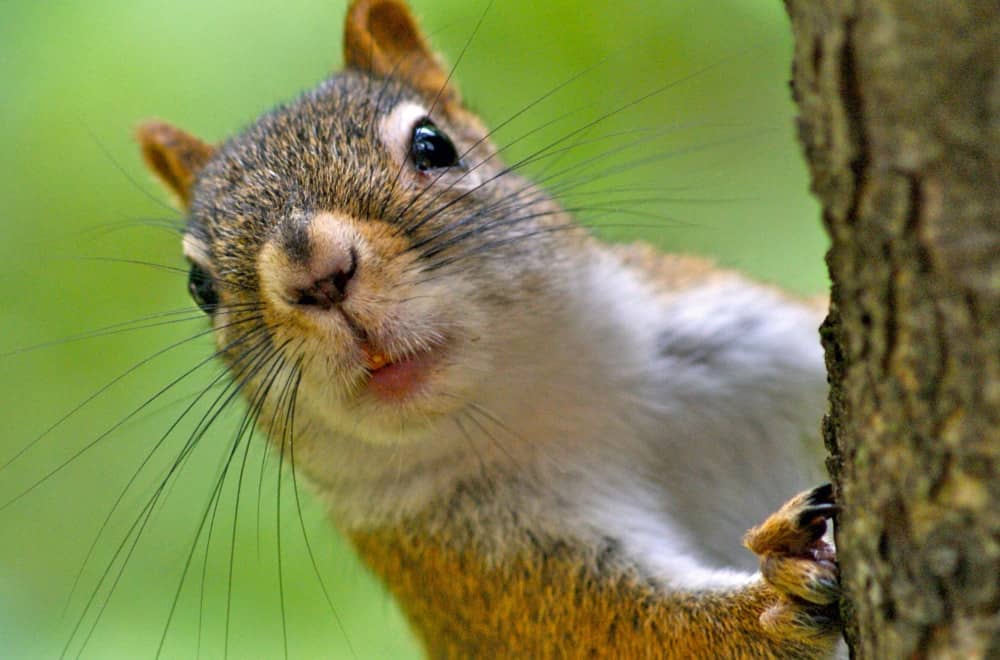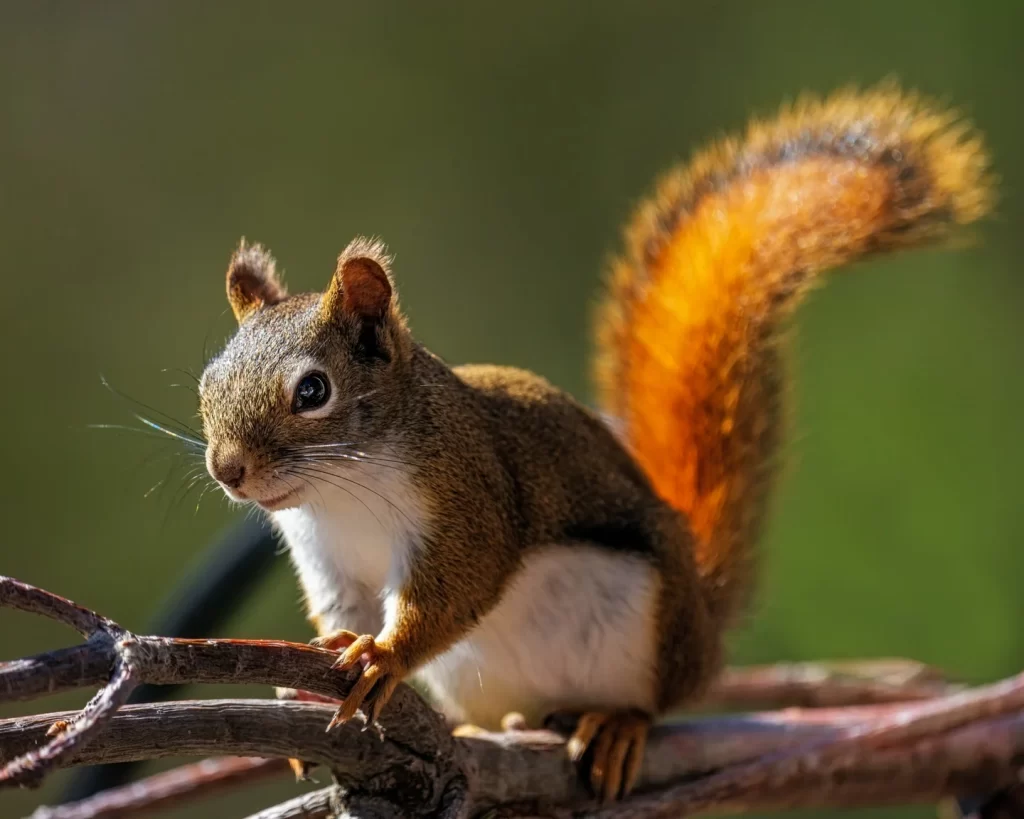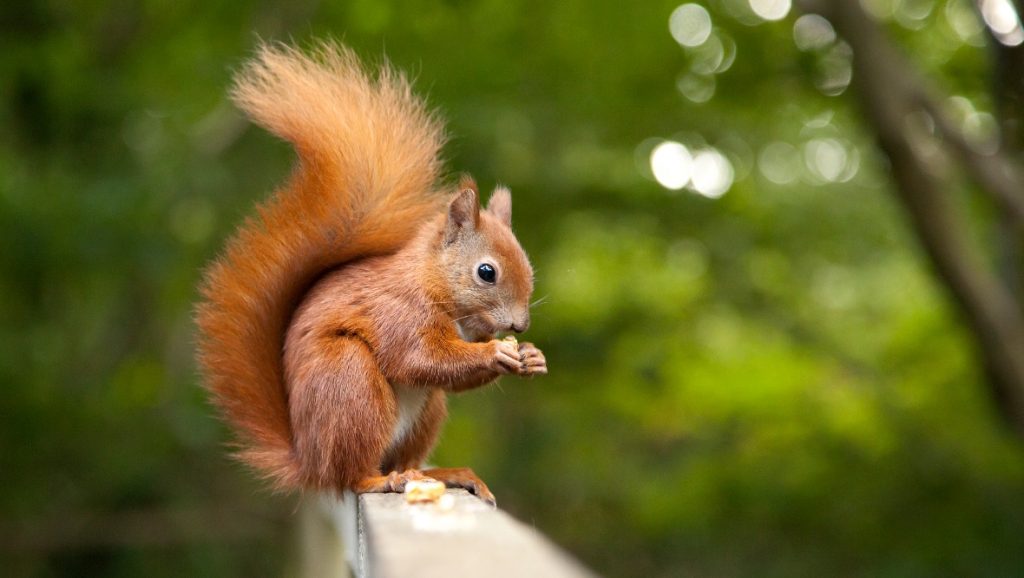Squirrels are a common sight in many parks and backyards, and their playful and energetic behavior can be fascinating to observe. They are known for their ability to climb trees and run along branches with ease, and their acrobatic maneuvers can be quite impressive. However, despite their cute and friendly appearance, interacting with squirrels requires caution and respect for their behavior and habitat. In this article, we will explore the behavior of squirrels and provide tips on how to best interact with them.

Behavior of squirrels
Squirrels are small, agile rodents that belong to the family Sciuridae. They are known for their bushy tails, sharp claws, and sharp teeth, which they use to climb trees and forage for food. Squirrels are diurnal animals, meaning that they are active during the day and rest at night.
Squirrels are primarily herbivores and feed on a variety of nuts, seeds, fruits, and vegetables. They are also known to eat insects, bird eggs, and small animals such as mice and young rabbits. Squirrels are also known for their hoarding behavior, where they collect and store food for future use.
Squirrels are social animals and live in communities called drays. They communicate with each other through a variety of vocalizations and body language, including chirps, barks, and tail flicks. Male squirrels are territorial and will defend their territory against other males, while female squirrels are more social and tend to live in larger groups.
Interacting with squirrels
While squirrels can be fascinating to observe and interact with, it is important to remember that they are wild animals and should be treated with caution and respect. Here are some tips on how to best interact with squirrels:

Observe from a distance
It is best to observe squirrels from a safe distance, such as a park bench or from indoors through a window. Squirrels may become frightened or defensive if approached too closely, especially if they feel threatened or cornered.
Do not feed squirrels
Feeding squirrels may seem like a fun and harmless activity, but it can actually be harmful to their health. Squirrels that are fed by humans may become dependent on handouts and lose their ability to forage for food on their own. They may also become aggressive towards humans in search of food.
Respect their habitat
Squirrels rely on trees and natural habitats for shelter and protection. Avoid disturbing their nests or habitats, and do not remove any items from their living areas. Squirrels may become aggressive if they feel that their habitat is being threatened.
Do not approach baby squirrels
If you come across a baby squirrel, it is best to leave it alone. Baby squirrels are often separated from their mothers temporarily while they are foraging for food. The mother will return for the baby squirrel once she is done. If you believe that a baby squirrel is orphaned or injured, contact a local wildlife rehabilitation center for assistance.
Protect your property
Squirrels are known for their ability to climb and chew through a variety of materials. To protect your property from squirrel damage, use squirrel-proof bird feeders and seal any potential entry points into your home or attic.

Squirrels are fascinating creatures that can be fun to observe and interact with. However, it is important to remember that they are wild animals and should be treated with caution and respect. By following the tips outlined above, you can safely and responsibly enjoy the company of squirrels while respecting their behavior and habitat.